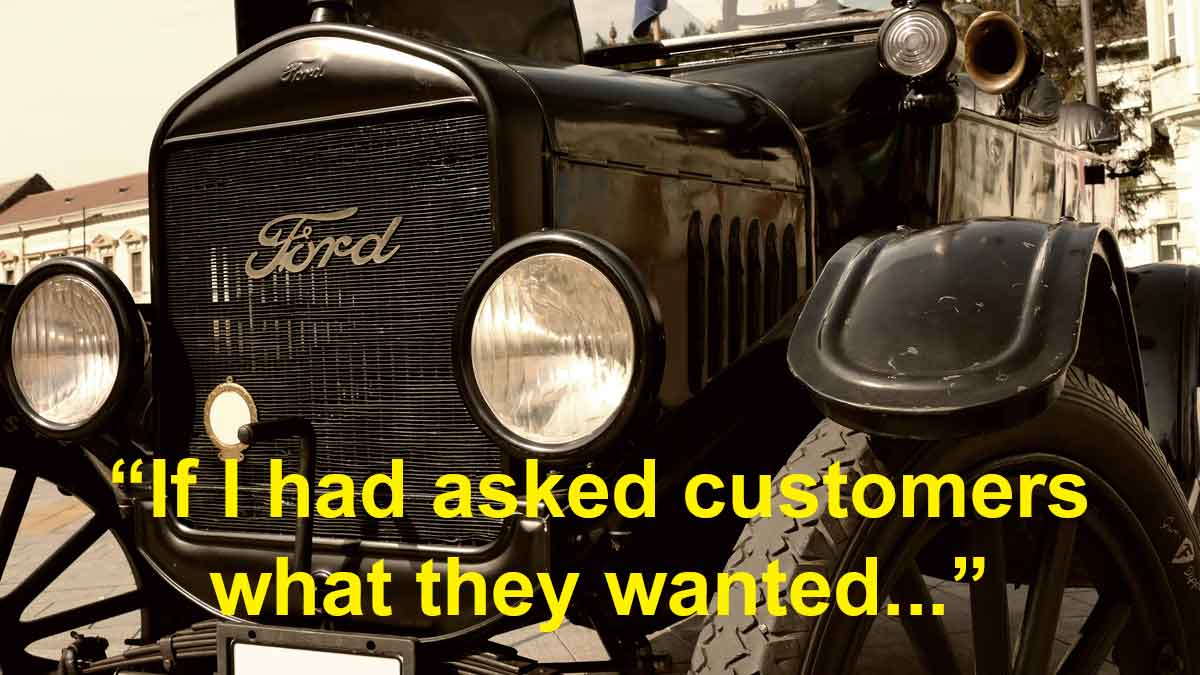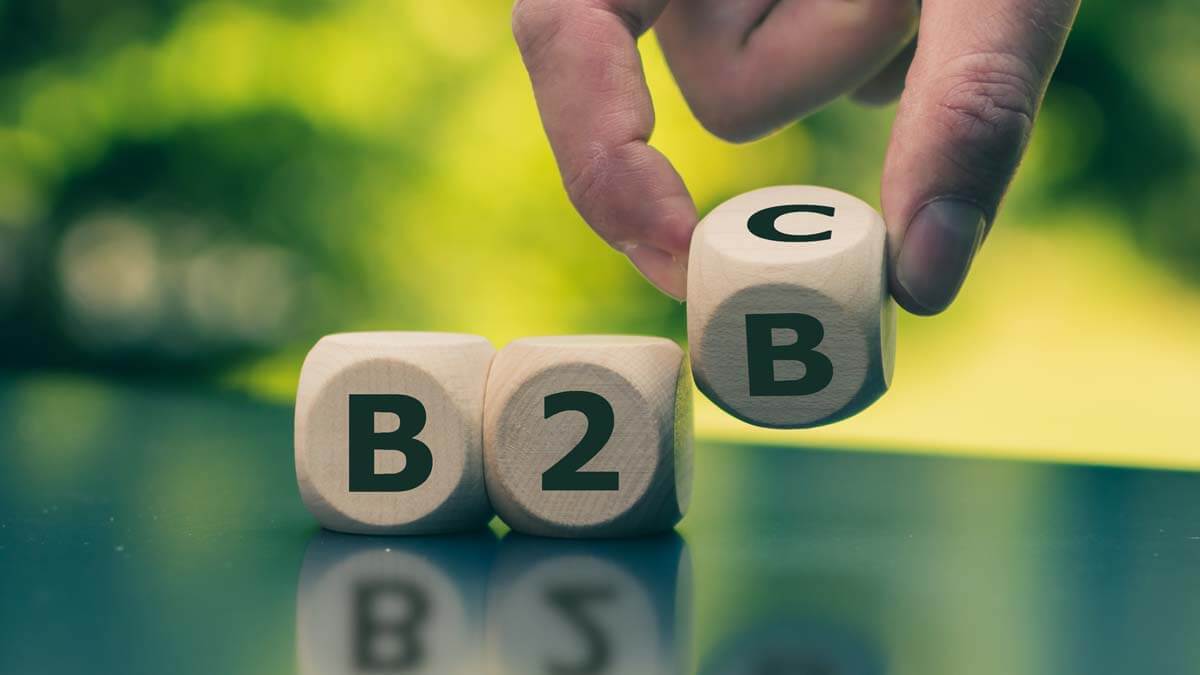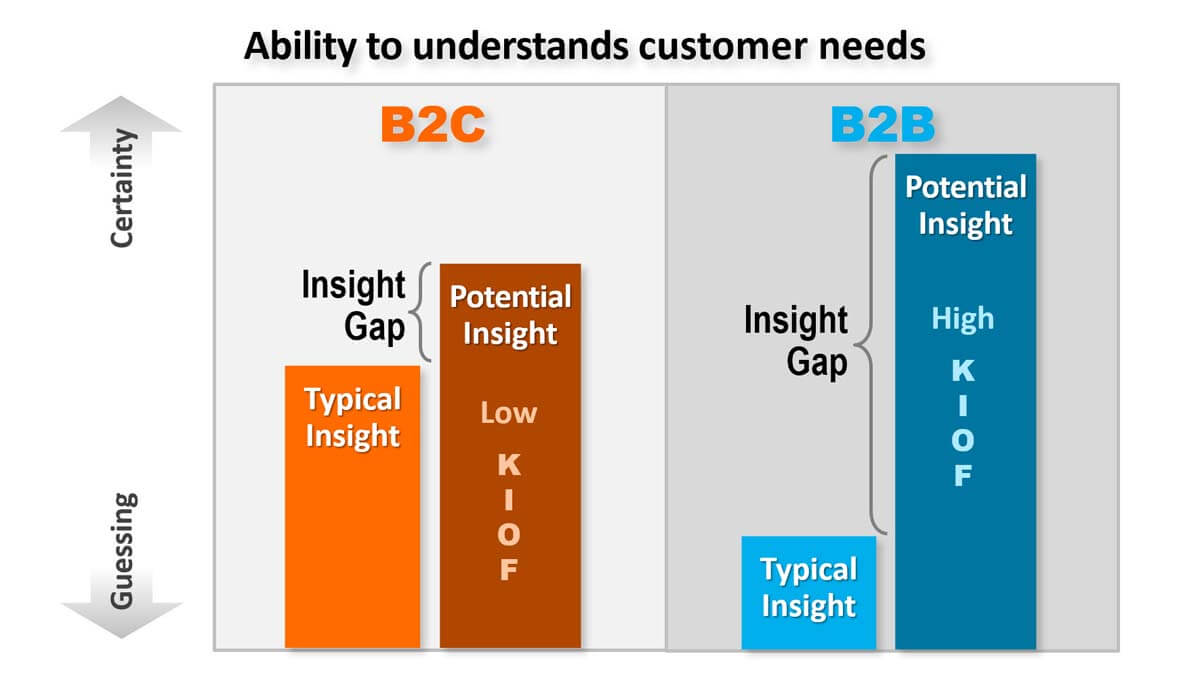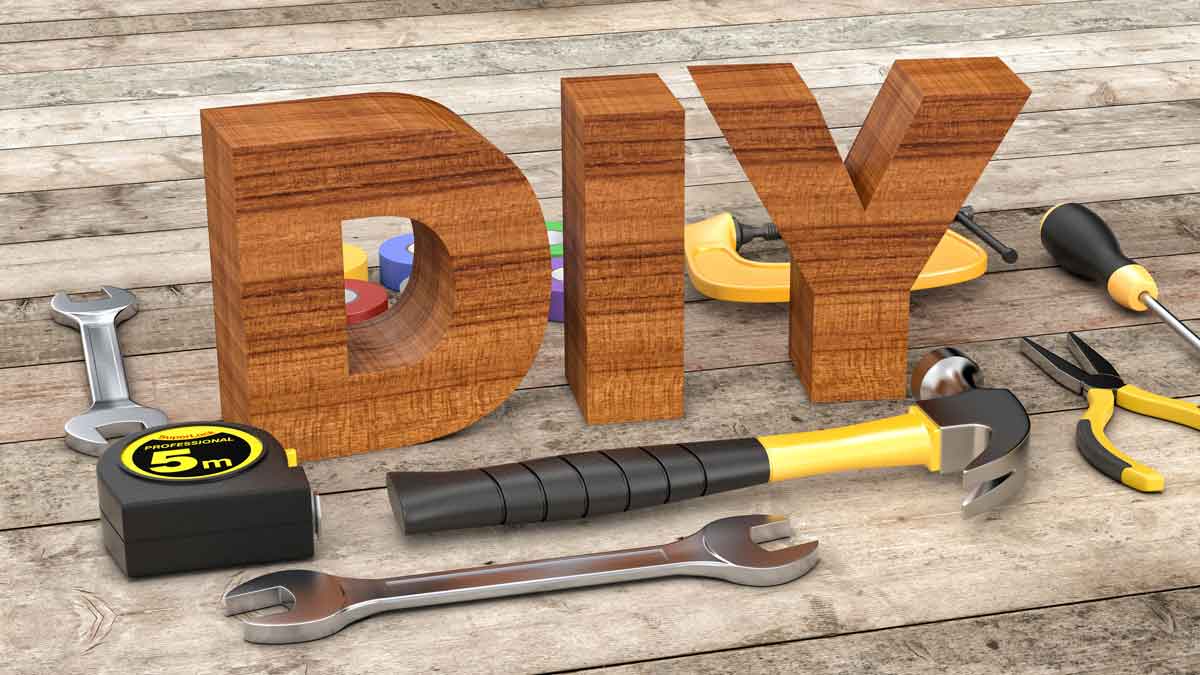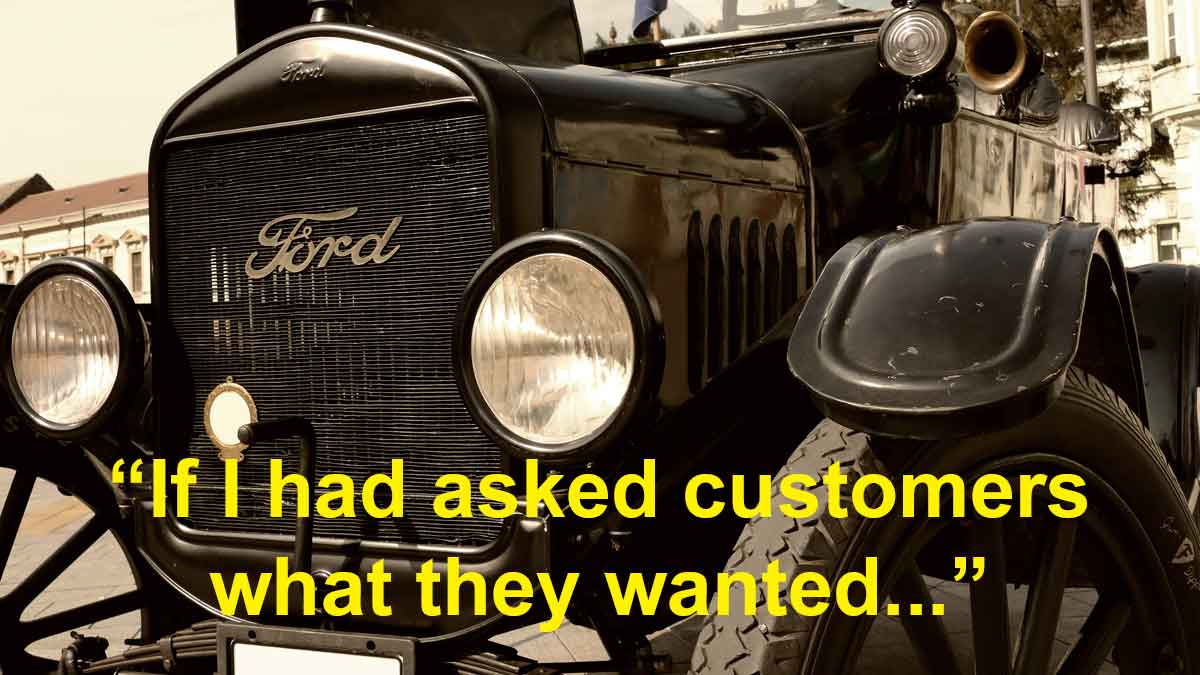It’s much more likely you don’t know how to ask them. B2C customers can seldom describe what will entertain them or boost their self-esteem. But B2B customers are knowledgeable, interested, and objective. They may not know the solutions, but they do know their desired end-results. You’ll learn this when you learn how to ask.
More in e-book, Reinventing VOC for B2B (page 15)
B2B companies have huge advantages over B2C, but they may not be obvious. After all, didn’t the same fellow who bought a rail car of soda ash also buy a can of soda pop? Nope. He changed… a lot. B2B customers are more technically savvy, objective, supplier-dependent, and can predict their needs. Careful reflection of these differences leads to different approaches.
More in 2-minute video at 15. Put your B2B advantages to work
Steve Jobs quoted Henry Ford, who said, “If I had asked people want they wanted, they would have said faster horses.’” But these men were end-consumers themselves, so they understood their markets. Most B2B suppliers, typically have much to learn about customer desired outcomes… and B2B customers are willing and able to tell them.
More in 2-minute video at 18. Avoid the faster horse fallacy
In our white paper, B2B vs B2C: Organic growth implications for B2B professionals, we cover 12 differences between suppliers to B2B vs. consumer goods markets. Is this just an academic exercise? Not at all. Every one of these differences has implications for organic growth. The news gets better if you’re a B2B supplier: Nearly all these differences are advantages in your favor. Of course, an advantage is no advantage if you don’t take advantage of it. This white paper will show you how.
Also see the 2-minute video, Understand your B2B advantages
The Customer Insight Gap is the difference between what suppliers typically understand about customer needs… and what they could potentially understand. This Gap is usually small for consumer-goods suppliers (B2C): Typical insight is high since their employees are consumers themselves and understand customer needs. At the same time, potential insight is low, because end-consumers often struggle to articulate their true needs.
The Gap is huge for most B2B suppliers: They know less about their customers’ world, but these customers could tell them much, given their Knowledge, Interest, Objectivity & Foresight (KIOF in chart). For more, watch this 2-minute video, Understand your B2B advantages. If you learn how to close the large B2B Insight Gap, you’ll get an amazing competitive advantage.
See white paper, B2B vs. B2C.
The potentially-intrusive nature of consumer “big data” has already caused some mistrust of B2C marketers. Conversely, the best B2B marketers—especially in concentrated markets with fewer customers—are now developing powerful interviewing skills to listen closely to their customers. You can imagine the response: Who among us doesn’t want to be carefully listened to and understood?
More in e-book, Leader’s Guide to B2B Organic Growth (Lesson 15)
B2C employees (e.g. Apple engineers) are consumers themselves, so they have high typical customer insight… but low potential insight, since consumers can’t easily predict what will entertain them. The gap between typical and potential insight when serving knowledgeable B2B customers is much larger. This is your competitive edge if you close the gap before competitors.
More in white paper, Catch the Innovation Wave (page 13).
B2B producers often take a DIY approach, while B2C marketers hire research firms. Why? For one thing, consumer products often have bigger annual revenues: Think of all the small B2B parts in a big-ticket item like a smart phone. For B2C it’s all about that launch. But B2B companies often “turn the crank” on many smaller new products… so its economical to develop in-house expertise.
More in article, You Already Answered 4 Questions, but… Correctly?
Many ventures try to create new products or services under conditions of market uncertainty. This is a huge challenge for B2C. But uncertainty does not exist in the minds of most B2B customers… who have great knowledge, interest, objectivity and foresight. If you know how to access this, your supplier uncertainty will plummet.
More in white paper, Lean Startup for B2B (page 12).
It’s much more likely you don’t know how to ask them. B2C customers can seldom describe what will entertain them or boost their self-esteem. But B2B customers are knowledgeable, interested, and objective. They may not know the solutions, but they do know their desired end-results. You’ll learn this when you learn how to ask.
More in e-book, Reinventing VOC for B2B (page 15).
B2B companies have huge advantages over B2C, but they may not be obvious. After all, didn’t the same fellow who bought a rail car of soda ash also buy a can of soda pop? Nope. He changed… a lot. B2B customers are more technically savvy, objective, supplier-dependent, and can predict their needs. Careful reflection of these differences leads to different approaches.
More in article, B2B Customer Interviews: Are They Different?
Steve Jobs quoted Henry Ford, who said, “If I had asked people what they wanted, they would have said faster horses.’” But these men were end-consumers themselves, so they understood their markets. Most B2B suppliers, typically have much to learn about customer desired outcomes… and B2B customers are willing and able to tell them.
More in article, Should You Develop New Products like Steve Jobs? (Originally published in B2B Organic Growth Newsletter).
Traditional VOC relies on questionnaires, tape recorders and post-interview analyses. That’s fine for B2C, but your B2B customers are insightful, rational, interested and fewer in number. They’re smart and will make you smarter if you engage them in a peer-to-peer fashion, take notes with a digital projector, skillfully probe, and let them lead you.
More in executive briefing, Seven Mistakes that Stunt Organic Growth.



